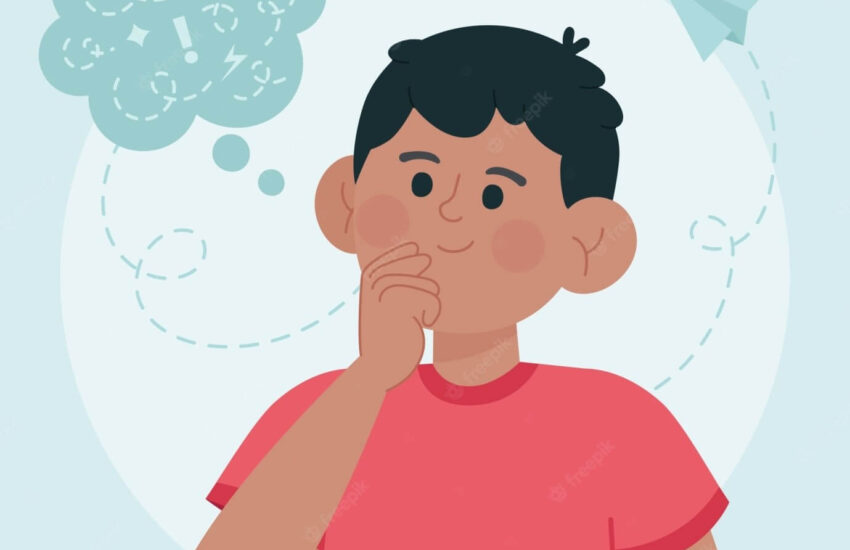ADHD is a medical condition that is typically diagnosed in childhood but frequently persists into adulthood. It is defined as “a persistent pattern of inattention and or hyperactivity-impulsivity that interferes with functioning or development.” ADHD is a treatable disorder. There are numerous effective impulse control strategies, accommodations, and medications available if necessary.
While certain characteristics of ADHD, such as difficulty sitting still, difficulty focusing, and impulsive behaviour, can cause people to struggle in school or at work, there are also benefits to ADHD. These ADHD “superpowers,” such as increased energy and creativity, indicate that living with ADHD isn’t all bad. To learn more about positive things with ADHD, consult with the best Psychologist near me at TalktoAngel.
Positive things about ADHD
People with ADHD have physical brain characteristics that cause symptoms such as impulsive behaviour and difficulty paying attention. However, those characteristics can also lead to advantages.
Some positive things about ADHD can be:
- Hyperactivity (inability to sit still) can be a frustrating symptom of ADHD, but on the plus side, it provides higher energy levels than people without ADHD.
- Hyper-focus: Hyperfocus is a state of intense concentration with little awareness of the surroundings or time. Although attention deficits are diagnostic criteria for ADHD, adults with ADHD have been linked to hyperfocus. When children with ADHD work on tasks or activities in their areas of interest, they may be able to forget about the rest of the world, approaching the highly sought-after “flow” state.
- Resilience: Resilience, or the ability to recover from adversity, is a predictor of success. According to parents and teachers, most children with ADHD are resilient.
- High levels of energy: Hyperactive children are extremely energetic, which manifests as constant activity, restlessness, and difficulty “slowing down.”
People with ADHD said they liked having more energy. This energy sometimes help them to do things more energetically. More energetic person is benefitted in the tasks that required high performance for example any physical sport.
- Creativity: Divergent thinking has been defined as the ability to generate new, unique, or inventive ideas. This seemingly uncontrollable flow of ideas in their heads, combined with the fact that they may see life from a different angle, appears to result in highly creative individuals and out-of-the-box thinking.
Problem-solving creativity is essential for academic and professional success. According to studies, people with ADHD have higher levels of creativity and idea generation than those who do not have the disorder. This can lead to the critical outside-the-box thinking required for innovation.
- Clear expectations: To cope with the symptoms of ADHD, people with ADHD and those close to them frequently have open, honest conversations about expectations, which benefits both parties and can strengthen the relationship.
- Nothing goes unnoticed: Staying on task can be difficult for some ADHD children because they are easily distracted, especially if they are not working on an interesting task. There are several measures we can take to avoid environmental distractions (sitting in the front of the classroom, having an uncluttered working space). ADHD people have amazing observational skills or great levels of awareness.
- Impulsivity: In some situations, impulsive behaviour can be detrimental, but in long-term relationships, impulsivity and playfulness help keep the spark alive.
- Receptive to therapy in online counselling and behavioural approaches: Many people with ADHD are open to trying new therapies or approaches, which can be beneficial when the relationship encounters difficulties.
- Acquired organizational skills: Having trouble remembering instructions and forgetting things. Children with ADHD learn strategies to help them stay organised and remember everything they need to do (lists, reminders, etc.)
As a result, it is not uncommon to read testimonies from adults with ADHD who believe they are recognised in their professional lives for their organisational skills.
- Risk tolerance: People with ADHD frequently have a higher risk tolerance than those who do not have the condition. In some cases, this can be advantageous because it allows them to try solutions that others might not.
- Self-reliance: People with ADHD learn how to soothe and regulate themselves as part of their treatment in online counselling, which is a skill that many neurotypical people struggle with.
- Self-awareness: Treatment for ADHD frequently includes therapies that promote self-regulation (the ability to manage emotions and behaviors). As a result, people with ADHD learn their triggers and patterns, as well as how to control them, more quickly than many neurotypical people.
There has been a lot of emphasis on the negative symptoms of ADHD. Although research on ADHD superpowers is limited, people with ADHD report being more energetic, creative, courageous, and resilient than those without the condition. While more research on the benefits of ADHD is needed, focusing on the benefits can help you or your child live with ADHD more positively.
ADHD has an impact on many aspects of your life. However, not all of these effects are negative. People who have ADHD may benefit from increased creativity and energy levels. Furthermore, ADHD medications have many advantages for people with ADHD, such as lowering their risk of accidents or addiction. Feel free to seek advise from the best Online Counselor at TalktoAngel regarding the ADHD concern.
